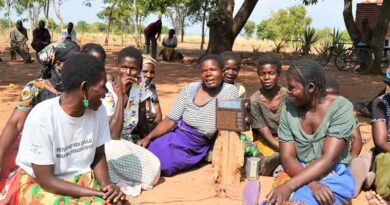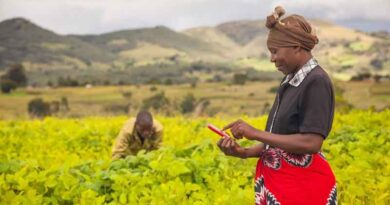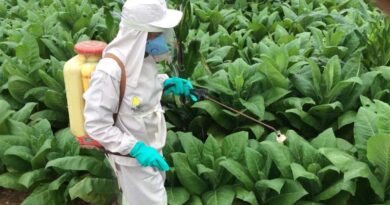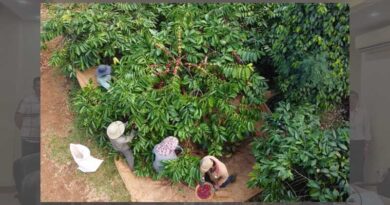The power of radio in fight against fall armyworm highlighted in new CABI-led study
06 September 2021,UK: A new CABI-led study has revealed the power of radio in extension communication as part of a campaign aimed at increasing the identification, monitoring and management of the fall armyworm (FAW) (Spodoptera frugiperda) pest amongst smallholder farmers in Zambia.
The research, published in the journal CABI Agricultural and Bioscience, showed that the radio campaign reached an estimated 1.4 million farmers and both male and female radio listeners were ‘significantly more aware of FAW and more likely to adopt the management practices than non-radio listeners.’
In particular, the scientists say, the radio listeners who heard at least one episode of the campaign (49% of respondents surveyed) were more likely to engage in preventative measures including frequent monitoring of FAW, intercropping and crop rotation than those who had not heard any part of the campaign.
Harrison Rware, lead author and Monitoring and Evaluation Specialist at CABI, said that – regarding FAW awareness – there was a significant difference between radio listeners and non-listeners. For instance, more radio listeners (86%) than non-listeners (80%) agreed that FAW can cause 100% damage and loss on maize and that the signs of FAW damage include small pinholes.
In respect of FAW management, Mr Rware said, 88% of listeners and 76% of non-listeners agreed that early planting at the onset of rains can help reduce FAW incidence. Furthermore, 68% of listeners and 43% of non-listeners agreed that crop rotation can help reduce FAW infestation. However, there was no significant difference between the two groups on the statements that FAW can be managed through hand picking and crushing on small scale, where 58% of both groups agreed.
When it came to monitoring, the two groups differed significantly on the statement that it is important to visit the maize farm 2–3 weeks after planting and to continue monitoring every 3 days, with 92% and 75% of the listeners and non-listeners agreeing, respectively.
The scientists, who include colleagues from the Zambia Agricultural Research Institute (ZARI), believe the results imply that the deliberate promotion of radio campaigns focussed on pest control would enhance listenership and improve interactivity while at the same time integrating other extension approaches.
Mr Rware added, “Invasive pests – such as the FAW, which in Zambia alone, caused estimated losses of US $159m in the 2018 annual maize crop – pose new challenges to farming systems, as extension workers and farmers often lack information on effective management approaches.
“The high mobility and quick spread of invasive pests requires wide scale information delivery to contain the problem and radio has proved to be a valuable tool in disseminating powerful messages to farmers to help them protect their crops from devastating pests including FAW.”
The survey included 250 male and 215 female farmers in the Eastern, Luapula, Copperbelt and Southern provinces of Zambia (Credit: CABI).
The FAW radio campaign was implemented between November 2018 and April 2019 in key maize growing areas and locations with reported high severity of fall armyworm as identified by national stakeholders.
The campaign messages covered FAW identification, monitoring and management practices. Delivery of messages was timed to the cropping calendar to ensure the received messages were relevant to the current agricultural activities.
The radio messages were pre-recorded and translated into all the seven national languages of Zambia, as well as English, and aired on national radio Zambia National Broadcasting Corporation (ZNBC) and six regional radio stations—Breeze FM, Eastern Province; Kasempa FM, North western province; Radio Yangeni, Luapula Province; Sky FM, Southern Province; Liseli FM, Western Province; and Ichengelo radio, Copperbelt Province.
Dr Julien Godwin, co-author of the study and Head of Project Operations, Digital Development at CABI, said, “Gender of respondent, education level, and maize farm size were significant predictors for farmer participation in radio campaign. This suggests the need to deliberately promote gender participation in the radio programs if listenership is to be enhanced. This can be done through integration of extension approaches including use of ICTs, interactive radio programming, and other inter-personal approaches.
“The integration of approaches may also be an effective strategy for equally reaching women as men, given the observed digital divide. Interactivity of extension approaches has been found to increase learning and adoption of new practices.”















